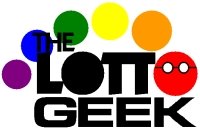Anyway, back to this add-on: the "insurance" feature. You see, 4/40 Jackpot tickets were, like pretty much every lottery game back then, $1 apiece. There was a bit of a catch to this game, though; if you bought a one dollar 4/40 ticket and did not match all four numbers, you won nothing! Zilch! Notta! Goose Eggs! All of the prize money raised from a $1 ticket went to the jackpot, leaving nothing for smaller prizes like most games. Presumbably realizing a backlash against a game with so few prize winners, those in control added something called "insurance", an extra dollar bet one made to give them a shot at smaller prizes; and while it didn't insure a win as the name suggested, it still helped out your odds quite a bit. Quite simply, plunking down an extra dollar gave you chance to win two additional prizes: $300 for matching 3 out of 4; and a free ticket (with insurance) for matching two. So, to recap: $1 buys you a chance at the jackpot; but you need another dollar to qualify for the other two prizes. Quite frankly, this all sounds like a bait and switch. It's almost like a car dealer selling you a car, only to tell you you have to buy the engine and tires separately.
Players didn't mind though; the game was successful and like most successful lotto games, they started adding numbers to make it harder to win. 4/40 Jackpot became 4/47 Jackpot in August 1983; in doing so raising the 3 of 4 insurance prize to $447, and adding a feature that turns the jackpot into an annuity if the jackpot reached $200,000. That in turn was replaced by Lot-O-Bucks in 1985; a 5/40 which kept both the insurance and annuity rule. The latter rule was a big reason why Lot-O-Bucks frequently had jackpots around $1,000,000. As for the insurance feature, it was still required to win non-jackpot prizes: four numbers won $450, three won $20, two still won a free ticket with insurance.
Lot-O-Bucks would run unchanged for another decade; then in 1995 it was replaced with a 5/30 called Rhody Cash, and unlike the games that came before it, you didn't need an extra dollar to win smaller prizes. The era of "insurance" was over; an era that no other state experienced. It could be said though that "insurance" would pave the way for the add-ons like Power Play and Megaplier we see today. You don't have to buy those add-ons in order to win a smaller prize (like you once did in Rhode Island), but it does increase those smaller prizes. You could say that they're spiritual successors to "insurance", successors that don't quite make you feel like a sucker.
Bonus: here are some newspaper ads heralding the 4/40 and 4/47 games upon their release. Look how big a deal they make quick-picks and multi-draws. Retroriffic! Warning: Big Files!








The "quirk" in the RI game you didn't go into detail is this: when the annuity was introduced, a jackpot of less than 200k was cash; however, above that, it was annuity-only! An advertised "cashpot" could have, for the same drawing, become an "annuitypot" with heavy sales. This AFAIK was RILOT's only attempt at a "major" jackpot game other than MM and PB; why RILOT never joined "Hot Lotto" in its early years (with balls...and two drums) I couldn't understand, because it would have given southeastern Mass players a game with a cash option, when Mass Megabucks (and Mass Millions) did not. Finally, you mentioned NY Lotto; it still is "antique" in terms of its 40 percent payout percentage ("The World's Biggest Ripoff" TM)
ReplyDeleteTanks for sharing this. An excellent example of how that started working!
ReplyDelete